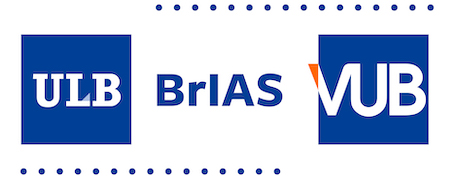Location:
FARI
Cantersteen 16, 1000, Brussels
1. Prof. Eduardo Camacho, Professor Emeritus, University of Seville, Department of Ingenieria de Sistems y Autimatica, Spain.
Title: "Model Predictive Control of Solar Energy Plants"
The talk addresses the control of parabolic trough collectors power solar plants. The talk describes the control problem encountered and how Model Predictive Control can be used to cope whit those problems. New control trends and, in particular, results obtained in the ERC funded OCONTSOLAR advanced grant are described. The grant aims to develop new control methods using mobile sensors mounted on drones and unmanned ground vehicles as an integral part of the control systems. The main objectives and challenges are 1: Methods to control mobile sensor fleets and integrate them as an essential part of the overall control systems. 2: Spatially distributed solar irradiance estimation methods using a variable fleet of sensors mounted on drones and UGVs. 3: New model predictive control algorithms that use mobile solar sensor estimations and predictions to yield safer and more efficient plant operation allowing the effective integration of solar energy. The talk also describe my experience in the MPC control of commercial solar plants.
2. Arjen Van de Walle, (Business Development Academy, VUB)
Title: Exploring the interlinkage between robotics, digitalisation and sustainability.
In light of the many global crises our world faces today, societies are increasingly committing to becoming more sustainable. Digitalisation is often hereby often framed as an important means to that end, with its potential to increase efficiencies and material transparacy. In this talk we will take a close look at this interlinkage, pragmatically linking it with business and questioning how the field of robotics fits within this debate. Arjen Van de Walle is currently performing research on the sustainable digitalisation of business at the Vrije Universiteit Brussel Business Development Academy (VUB BUDA) and is active within the European Digital Innovation Hub (EDIH) sustAIn.brussels where he supports Brussels companies in increasing the sustainability of their digital transformation.
3. Dr. Naveen Tiwari, Post-doc, University of Santiago de Compostela, Center for Research in Biologial Chemistry and Molecular Materials, Spain.
Title: "Self healing materials for Soft electronics"
With the onset of flexible and wearable electronics, devices are now put on places like the human body and various curved surfaces which doesn’t have any regular shape and sizes. Therefore, these devices need to be flexible, conformable and stretchable to fulfil all these applications. However, the continuous exposure of these devices is always subjected to higher mechanical stress, wear and tear when compared to conventional electronics. Hence the ability to recover and repair upon damage is a necessity and not a luxury for flexible electronic devices. These applications not only require good electrical conductivity but demand better mechanical properties like stretchability, flexibility and robustness where the conventional electrodes, for example, indium tin oxide (ITO) fail to perform. Hence, self-healing, flexible, transparent electrodes could transform the way of fabrication of electronic devices in future.
For the teams link, or in-person participation, registration is required. Coffee and tea will be served.
This Seminar will also be livestreamed on our Youtube channel @BrIAStalks
